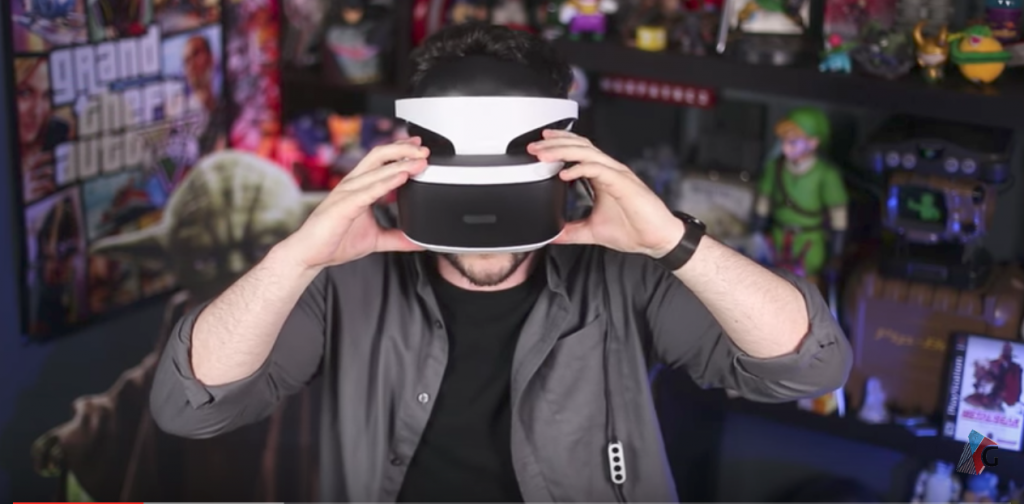
Official still from ‘Free Whale’. Photo: Courtesy of Sandman Studios.
China saw explosive growth in the VR sector last year, but by the end of 2016 people in the industry were saying that the sector had “frozen”. Despite some noise surrounding the future of China’s VR development, this Beijing-based VR film startup last month made its way to the Venice International Film Festival.
Selected as one of the finalists in VR competition, Sandman Studios’ “Free Whale” is a seven-minute long sci-fi animation. The Venice International Film Festival was one of the first festivals in the world to express interest in VR and announced this year the first-ever competition for films made in VR, featuring 22 films from around the world—four of them in Chinese (three from Mainland China and one from Taiwan).
China’s VR industry is expected to expand more than fourfold in 2017 as more major players enter the industry and more content drives growth, according to research firm IDC’s forecast released this January. Alvin Wang Graylin, China Regional President of HTC Vive, also predicted earlier this month “we will be more dependent on VR devices than we are our phones today” and that “remote work via VR will become the norm.”
Even CCTV, China’s state-owned media, has adopted VR technology to broadcast Spring Festival Gala and basketball matches helped by a Beijing-based VR production startup 7D Vision Tech. Among RMB 20 million annual sales ($2.9 million) the startup made, about half of it went to the service fee for VR filming for TV stations.
Free Whale depicts the story of Shem, a young “fetcher,” who’s on a mission to retrieve AI samples from the distant Planet Kandinsky along with his AI partner Young. Along the way he encounters a machine whale.
“This film only touches on the beginning part of the story,” said Eddie Lou, the 32-year-old founder of Sandman Studios and the producer of Free Whale. “We plan to produce more films to continue the story in the future,” he told TechNode.
Having lived in the UK for almost a decade, Eddie Lou moved back to China in 2010 after obtaining his master’s degree in Enterprise Management for the Creative Arts from University of the Arts London. He also holds a bachelor degree in computer science from Imperial College London.
It might seem natural for him to set foot in the VR industry given Lou’s technology and arts background, but it was only until 2016 that he decided to found Sandman Studios after working for years with consulting and research firms
“I discovered that VR is really my thing,” he said.
Lou started out small. Assembling a team of 10 out of his own pocket, he began to produce Free Whale in August 2016. However, the production process was a lot longer than he expected.
“It took us almost six months to complete the film. It’s challenging to come up with the ‘right’ script for VR storytelling. For the script only, we went from version 1.0 to 6.5,” said Lou. “The 6.5 version turned out to depict a very different story from the 1.0 one,” he laughed.
Indeed, VR storytelling is still at its early stage and everyone in the industry is making efforts to explore the new medium. “VR stories are very different from traditional movies in terms of production. There’s no shooting list and no storyboard that frames out the outline of the story,” he said. “Doing VR [films] is a long game, not a short game.”
Free Whale opens the scene with a long take which lasts nearly the entire film, with only a few cuts of scene changes at the end. This increases the workload and difficulties. Another thing worth noting is the speed of software upgrades. “We have to keep our software up-to-date and learn how to use it almost every two months,” said Lou.
Now that the film is done and scheduled to screen at Venice International Film Festival, Lou is optimistic about film distribution despite the limited distribution channels. “I’ll talk to Oculus for online distribution,” he said. “I’ll also consider distributing the film through offline VR cinemas.”
Lou explained that there are few offline VR film distribution spots in China, with the first VR cinema opening last month in Beijing. Accessibility to devices remains an issue for VR film distribution. “I think VR cinemas are the best solutions for distribution. It’s expensive for regular consumers to purchase VR gears and the installment can be ‘Hell’ of a hassle for them as well,” said Lou.
There are quite many offline VR experiential centers in China, but most of them are highly focused on gaming that attracts more of a niche market. “I think VR cinemas are more promising as they serve a broader audience,” said Lou. “They [VR cinemas] are just like internet cafes. You pay an hourly fee to play with high-end gear,” he said, adding that the “rental model” will work better than the “purchase model” as the former’s less costly.
“I believe that the VR industry will take off once the offline channels are built and the content is ready,” said Lou.
Eddie Lou also remains positive about the growth of China’s VR industry. “We just need to provide more accessibility [to VR equipment] for the public,” he said.
— A version of this article originally appeared on TechNode.








